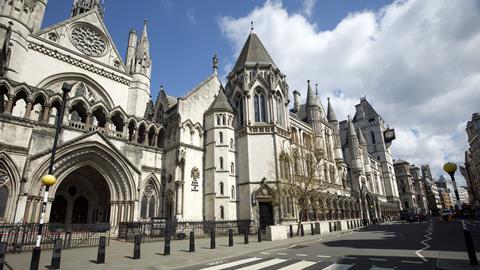The Court of Appeal has ruled out a retrial despite being ‘troubled’ by the judge in the first trial twice losing his temper with the defence barrister.
Leon Shortt was convicted of drug offences following a trial at St Albans Crown Court last October, but he argued the proceedings were unfair because of interventions, comments and inappropriate behaviour by the judge.
The appeal court was asked to consider 16 individual complaints relating to Recorder Claxton’s handling of the trial. The majority were found to lack substance, but Lady Justice Whipple and Mr Justice Goose expressed ‘concerns’ about four of the complaints raise.
They said the judge had been ‘unwise’ to interrupt the defence counsel’s cross-examination of an expert witness and ‘improperly descended into the ring’ through this intervention. There were two further occasions where the judge ‘lost his temper’ with counsel ‘in a way which cannot be justified’.
But the appeal judges had no real concern that the jury might have been unduly influenced in its deliberations or that the judge demonstrated perceived bias.
‘The question for us is whether the cumulative effect of the judge’s behaviour, to the extent we have found that behaviour to be inappropriate, rendered this trial unfair,’ they said. ‘Fairness is not an absolute concept; there are many things in life and in the law which could be done better but which do not make the process intrinsically unfair.
‘Standing back, we have concluded that our concerns about the way this trial was managed do not come close to the point where the trial as a whole might be considered unfair.’
Shortt had submitted that the judge undermined his account and credibility in his summing, which drew laughter from the jury. It was argued the judge had been ‘highly antagonistic and unprofessional’ towards defence counsel Justin Yang throughout the trial, which unfairly undermined his ability and focus.
The appeal judges said some exchanges complained about from the trial merely showed the judge trying to identify the central issues.
At one point, the judge asked Yang if he could refer to the prosecution expert as an expert and noted that the barrister was smiling. The appeal judges said this was ‘well within the judge’s trial management discretion’.
Yang complained that the judge had tried to make light of his client’s case and caused the jury to laugh, but the appeal judges could hear no trace of audible laughter and said there was nothing in the tone of delivery that might have invited ridicule or amusement.
They concluded that the appeal should be dismissed because it was predicated on the submission that the judge was antagonistic and unprofessional throughout the entire trial.
‘We have found only a few incidents which are concerning,’ they added. ‘We have rejected many more. We have not accepted, in any event, that Mr Yang was knocked off course in his representation of the appellant by the judge’s behaviour.’
This article is now closed for comment.




























4 Readers' comments